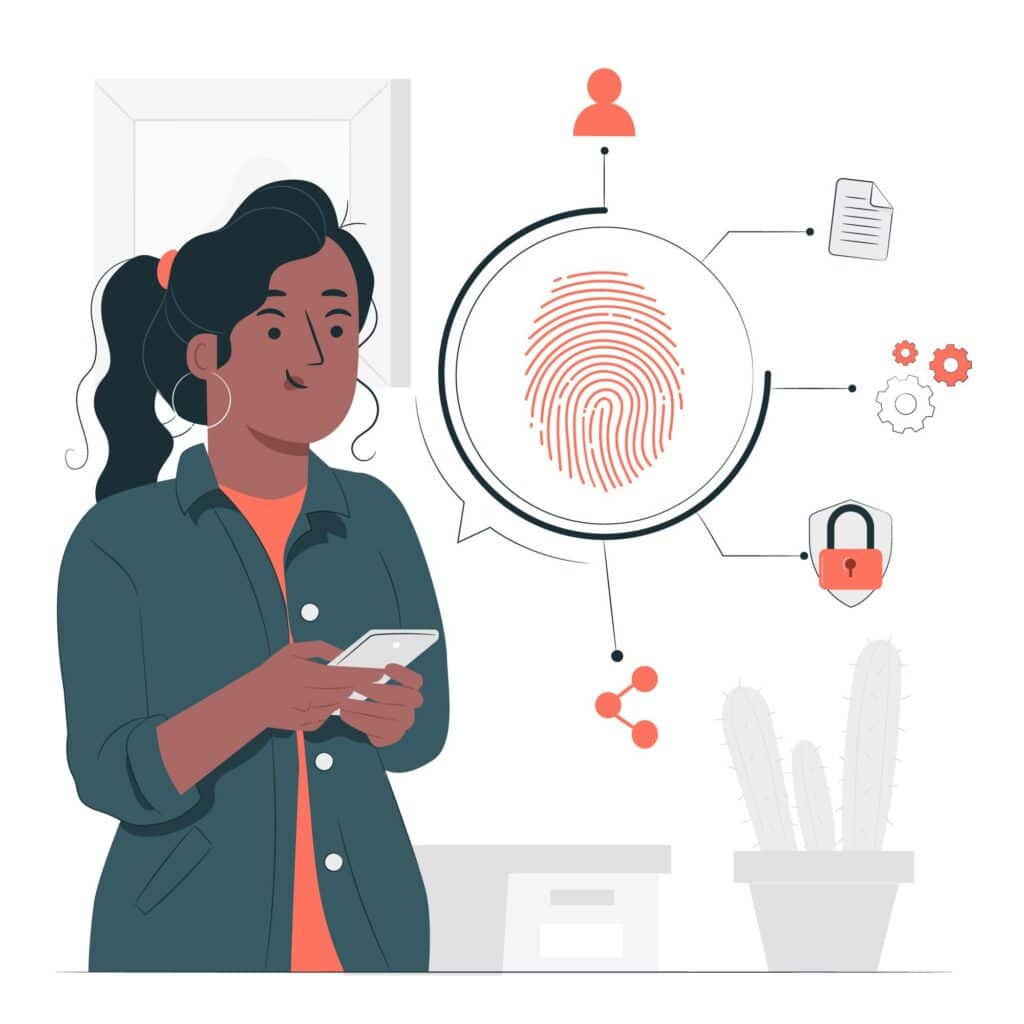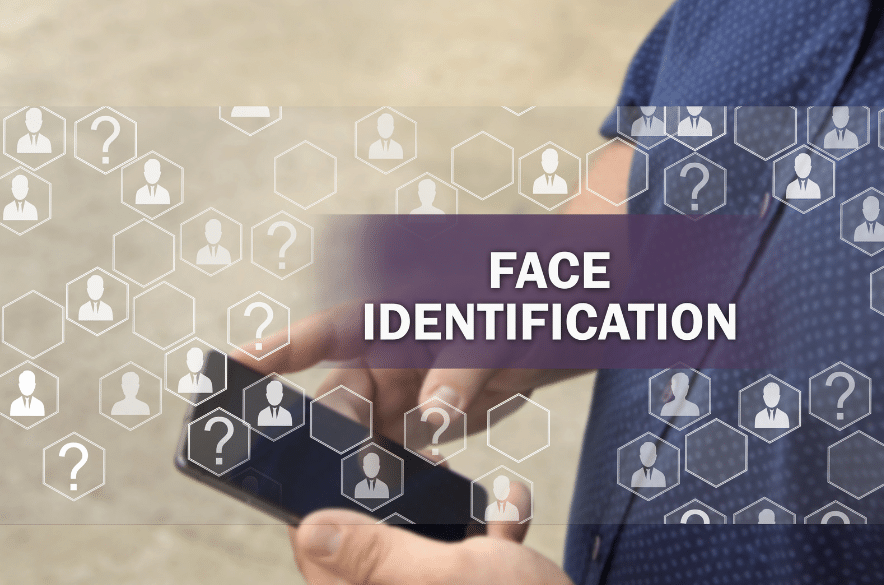Identity Verification Solutions: A Comprehensive Guide

See how ScreenlyyIDs purpose built SaaS solution can reduce your Identity Verification, KYC and AML costs, automate processes and keep you compliant with confidence. Book a demo or signup today.

In today’s digital world, ensuring the security and authenticity of online identities is more important than ever. Identity verification solutions play a crucial role in this process, helping businesses prevent fraud, improve customer experience, ensure compliance, and save time and resources.
With different types of verification methods available, businesses face challenges in choosing the right solution that balances security and user experience. This comprehensive guide explores the importance of identity verification, the different types of solutions available, how they work, their benefits, challenges in implementation, and tips for selecting the right solution for your business.
What Is Identity Verification?
Identity Verification is the process of confirming a person’s identity based on provided information, typically used in various online and offline scenarios to establish a person’s Digital Identity.
It plays a crucial role in securing online transactions, preventing identity theft, and ensuring regulatory compliance. Authentication methods, such as two-factor authentication and biometric verification, are commonly employed during the identity verification process to enhance security measures.
Identity proofing, which involves verifying the authenticity of identity documents and information provided by an individual, is an essential component of this process. Various sectors, including finance, healthcare, and e-commerce, rely on identity verification to safeguard sensitive data and maintain trust with customers.
Why Is Identity Verification Important?
Identity Verification plays a crucial role in safeguarding against Identity Fraud, ensuring Compliance with regulatory standards, and preventing unauthorized access to sensitive information.
By accurately verifying the identity of individuals, organizations can effectively mitigate fraudulent activities and reduce the risk of financial loss. Incorporating robust Identity Verification processes not only strengthens security measures but also provides a foundation for thorough Risk Assessment procedures.
Identity Verification plays a pivotal role in Identity Theft Protection by confirming the legitimacy of users and preventing potential breaches. Compliance regulations, such as KYC (Know Your Customer) and AML (Anti-Money Laundering), emphasize the significance of Identity Verification in maintaining transparency, accountability, and trust within the financial ecosystem.
What Are the Consequences of Not Verifying Identities?
Failure to verify identities can lead to severe consequences such as Identity Fraud, financial losses, compromised data security, and reputational damage for both individuals and organizations.
This negligence can result in a myriad of issues, including unauthorized access to sensitive information, fraudulent activities within financial systems, and potential legal ramifications. Identity verification plays a crucial role in not only preventing identity theft but also in safeguarding the integrity of transactions.
Secure access protocols are essential to ensure that only authorized individuals can access personal or confidential data. Properly implementing fraud detection measures can significantly reduce the risks associated with identity fraud, protecting individuals and organizations from potential financial losses and reputational harm.
Maintaining strict data privacy practices is essential to prevent unauthorized parties from exploiting vulnerabilities and engaging in fraudulent activities.

What Are the Different Types of Identity Verification Solutions?
Identity Verification Solutions encompass various methods such as Biometric Verification, Document Verification, Automated Verification, and Manual Verification to authenticate and validate users’ identities.
Biometric Verification, a key component of Identity Verification Solutions, relies on unique biological traits like fingerprints, facial recognition, or retinal scans to confirm an individual’s identity.
On the other hand, Document Verification utilizes advanced technologies to assess the authenticity of government-issued IDs, passports, or other documents in real-time.
These Verification Technologies enable businesses to enhance security measures by quickly verifying the legitimacy of users, reducing the risks associated with identity fraud and ensuring a seamless onboarding process for customers.
Manual Verification
Manual Verification involves human intervention to validate user identities by cross-checking information provided with official documents, enhancing Identity Validation processes.
This approach plays a crucial role in ensuring accurate identity confirmation and safeguarding against fraudulent activities. Identity Verification Providers offer comprehensive Identity Verification Services that employ skilled professionals to meticulously review documents and information to confirm the authenticity of the user’s identity.
Manual Verification adds an extra layer of security by allowing trained individuals to assess and analyze discrepancies or inconsistencies that automated systems may overlook, thereby enhancing the overall accuracy and reliability of the verification process.
Automated Verification
Automated Verification utilizes technology to swiftly authenticate user identities through algorithms and databases, streamlining Identity Management processes for enhanced efficiency.
This approach plays a crucial role in optimizing verification processes, ensuring secure access to digital platforms. By leveraging Multi-factor Authentication, Automated Verification adds an extra layer of security, making it harder for unauthorized users to gain access. This technology-driven method reduces the dependency on manual verification, eliminating human errors and significantly speeding up the verification process. It enhances the overall user experience by providing a seamless and reliable authentication mechanism, fostering trust between users and the platforms they interact with.
Biometric Verification
Biometric Verification leverages unique biological traits such as fingerprints or facial recognition for secure and accurate user identification, ensuring Secure Identity Verification.
With the advancement of technology, Biometric Identification has become a cornerstone in modern security measures. By utilizing an individual’s distinct physical characteristics, this method offers a highly secure way to verify and validate one’s identity. The accuracy and reliability of biometric data make it a reliable tool for fraud prevention, as it is difficult to duplicate or forge these biologically inherent features. Incorporating biometric verification into authentication processes not only enhances security but also streamlines user experience by reducing the reliance on traditional password-based systems.
Document Verification
Document Verification involves validating user-provided documents against official databases to ensure compliance with KYC regulations and establish the authenticity of user identities.
This process is crucial in the realm of KYC Compliance as it helps businesses in verifying the identities of their customers and preventing fraudulent activities. By conducting Government ID Verification and Document Authentication, companies can mitigate risks associated with identity theft and ensure that individuals are who they claim to be. Maintaining accurate records and validating official documents not only boosts security measures but also fosters trust between businesses and their clients. Document Verification plays a key role in complying with regulatory standards set forth to combat money laundering and other financial crimes.
How Do Identity Verification Solutions Work?
Identity Verification Solutions operate by collecting user information, initiating a verification process, and authenticating user identities in real-time to ensure secure access and prevent fraudulent activities.
This process is crucial in safeguarding sensitive data and transactions, especially in today’s digital age where cyber threats are rampant. Through an Identity Verification Platform, organizations can streamline and automate these verification processes, which enhances efficiency and accuracy. Remote Identity Verification has emerged as a valuable tool, allowing businesses to verify user identities remotely without compromising security. By integrating risk assessment protocols, these solutions can accurately assess the level of risk associated with each verification attempt, thus ensuring a robust and secure verification workflow.
Collection of Information
The initial step in Identity Verification involves collecting user data such as personal details or official documents in adherence to Compliance Regulations to establish a robust verification process.
Data privacy is a critical component during the data collection phase, ensuring that individuals’ sensitive information is handled securely and in line with legal requirements. Organizations must follow strict guidelines to protect data privacy rights and prevent potential breaches. By gathering accurate and up-to-date information, companies can boost the effectiveness of their verification procedures while maintaining trust with their customers. Ultimately, aligning data collection practices with Data Privacy laws not only safeguards personal data but also helps in building a strong foundation for a reliable verification system.
Verification Process
Once user information is collected, the Verification Process entails validating the provided data through various Identity Verification Checks to confirm the authenticity of identities and prevent fraudulent activities.
This crucial process involves a series of meticulous verification protocols to ensure Secure Identity Verification. These protocols may include document verification, biometric authentication, and background checks. By employing these robust validation methods, businesses can establish a secure environment and build trust with their customers.
Going beyond basic data validation, the Identity Verification Process is designed to thwart identity theft, money laundering, and other illicit activities. It serves as a safeguard, protecting both users and businesses from potential security breaches and financial losses.
Authentication of Identity
Authentication of Identity involves confirming user identities through Multi-factor Authentication methods, enhancing security measures and ensuring accurate user validation.
This process is crucial in safeguarding sensitive information and preventing unauthorized access to personal or proprietary data. Implementing strong authentication practices, such as biometric verification and one-time passcodes, adds an extra layer of protection against identity theft and cyber threats. Identity Validation Services play a key role in verifying user identity by cross-referencing information provided with external databases, ensuring compliance with Identity Verification Requirements. By incorporating these robust authentication processes, organizations can mitigate risks and maintain a secure digital environment for users.
What Are the Benefits of Identity Verification Solutions?
Identity Verification Solutions offer significant benefits such as preventing fraud, enhancing customer experience, ensuring compliance with regulations, and saving time and resources for businesses.
By implementing robust Identity Management processes, organizations can strengthen their overall security posture while reducing the risk of unauthorized access or identity theft. Identity Validation solutions streamline the onboarding process, accelerating customer interactions and leading to higher satisfaction levels. From a regulatory standpoint, these solutions play a crucial role in meeting stringent KYC (Know Your Customer) and AML (Anti-Money Laundering) requirements, safeguarding businesses from hefty fines and reputational damage.
Prevents Fraud
Identity Verification Solutions play a pivotal role in preventing fraud by accurately verifying user identities, implementing risk assessment strategies, and detecting potential fraudulent activities in real-time.
In order to strengthen security measures, Identity Verification Solutions utilize Identity Validation techniques such as document verification, biometric authentication, and facial recognition technology. By integrating advanced fraud detection algorithms and machine learning models, these solutions can significantly reduce the risks associated with online transactions and financial activities.
Proactive fraud prevention measures are essential to stay ahead of cybercriminals who constantly devise new tactics to bypass security systems. Through continuous monitoring and analysis of user behavior patterns, Identity Verification Solutions can promptly flag suspicious activities and prevent potential fraudulent incidents.
Improves Customer Experience
Identity Verification Solutions contribute to enhancing customer experience by streamlining onboarding processes, ensuring seamless transactions, and providing reliable Identity Verification Tools for user convenience.
Implementing Online Identity Verification solutions has revolutionized how businesses onboard new customers, offering swift authentication procedures that save time for both the user and the company. By integrating Customer Verification tools, organizations can significantly reduce fraud risks, enhance compliance with regulatory requirements, and ultimately foster trust and confidence among their user base. These advanced technologies not only boost security measures but also foster a more positive and hassle-free user experience, paving the way for stronger customer relationships and increased satisfaction levels.
Ensures Compliance
Identity Verification Solutions help businesses maintain regulatory compliance by verifying user identities in alignment with legal requirements, offering specialized Identity Verification Services to meet industry standards. This ensures that businesses adhere to KYC Compliance and other regulatory guidelines, reducing the risk of financial penalties and reputation damage.
By implementing Identity Verification Solutions, companies can streamline customer onboarding processes and accurately assess potential risks associated with fraudulent activities.
In sectors like finance, healthcare, and online retail, meeting identity verification standards is crucial to safeguarding sensitive data and preventing identity theft and money laundering.
Compliance regulations are constantly evolving, making it essential for organizations to stay updated and enhance their verification methods to stay compliant.
Saves Time and Resources
Implementing efficient Identity Verification Solutions saves businesses valuable time and resources by automating verification processes, utilizing secure Identity Verification Platforms, and reducing manual verification efforts.
These solutions leverage cutting-edge technology like Identity Verification API and Identity Verification Software to streamline verification procedures. By automating identity checks, businesses can significantly cut down on operational costs and potential errors. The integration of these technologies enhances the accuracy and speed of verifying customer identities, ultimately improving customer experience. With real-time verification capabilities, businesses can onboard customers swiftly while maintaining strict security protocols. The seamless integration of Identity Verification API and Software ensures a smooth and efficient verification process, enabling businesses to focus on core operations and growth initiatives.
What Are the Challenges of Implementing Identity Verification Solutions?
Despite the benefits, challenges in implementing Identity Verification Solutions include balancing security and user experience, staying abreast of evolving technologies, and ensuring data privacy and protection.
These obstacles can arise due to the complexity of integrating new Identity Verification Innovations into existing systems without disrupting the user experience. Organizations often struggle to strike a balance between implementing stringent security measures and maintaining a seamless onboarding process for their users.
The rapid pace of technological advancements poses a hurdle in developing and adopting Identity Verification Strategies that are both effective and future-proof. Data privacy and protection further complicate the implementation process, requiring meticulous attention to comply with stringent regulations and safeguard sensitive information.
Balancing Security and User Experience
One of the primary challenges in Identity Verification is finding the right balance between robust security measures and a seamless user experience, all while adhering to stringent Compliance Regulations.
Identity Verification processes are essential to ensure that individuals accessing accounts or services are who they claim to be, safeguarding against fraud and unauthorized access. Balancing these security measures with a user-friendly interface is crucial for enhancing customer satisfaction and loyalty.
Compliance Regulations play a crucial role in dictating the standards that businesses must follow to protect user data and maintain the integrity of their verification processes. By prioritizing Identity Validation while also focusing on creating a positive user experience, companies can establish trust with their clients while meeting regulatory requirements.
Keeping Up with Evolving Technology
The rapid evolution of technology presents a challenge in Identity Verification as businesses must continuously adapt to emerging trends, innovations, and new verification technologies to stay ahead in the digital landscape.
Digital transformation has pushed companies towards embracing Electronic Identity Verification and Identity Verification Best Practices to enhance security measures while streamlining user experiences. With the rise of cyber threats, implementing robust verification processes is no longer an option but a necessity.
Businesses are exploring biometric authentication, AI-driven identity verification, and blockchain technology to fortify their verification protocols. This shift towards more advanced and sophisticated verification methods marks a pivotal moment in the quest for secure and seamless digital interactions.
Ensuring Data Privacy and Protection
Safeguarding data privacy and protection poses a significant challenge in Identity Verification, requiring businesses to partner with reliable Identity Verification Providers to ensure secure data handling and compliance with privacy regulations.
This emphasis on data security is crucial for maintaining trust and integrity in the realm of personal identity verification. Trusted providers play a pivotal role by implementing encryption protocols and stringent access controls to safeguard sensitive information from unauthorized access.
Secure access protocols not only protect user data but also contribute to building a robust framework for preventing identity theft and fraud. Adherence to privacy regulations such as GDPR and CCPA ensures that individuals’ personal information is handled ethically and legally, promoting transparency and accountability in the digital age.
How Can Businesses Choose the Right Identity Verification Solution?
Selecting the appropriate Identity Verification Solution involves assessing business needs and goals, researching and comparing providers, and considering cost and scalability factors to ensure a seamless integration process.
Understanding the specific Identity Verification Requirements of your organization is crucial in identifying the most suitable solution that aligns with your operational objectives.
By conducting a detailed evaluation of your current processes and future growth plans, you can gain clarity on the essential features and capabilities needed in an Identity Verification Tool.
It is essential to examine the track record and reputation of potential service providers to ensure reliability and compliance with industry standards.
Evaluating the long-term cost implications and scalability options will guarantee a sustainable investment in a solution that can grow with your business.
Assessing Business Needs and Goals
Businesses must start by evaluating their specific needs and objectives when selecting an Identity Verification Solution, ensuring alignment with fraud prevention strategies and operational goals.
This initial step is crucial in determining the level of security required to protect the business and its users from potential identity theft risks. By conducting a thorough assessment, organizations can identify weaknesses in their current verification processes and pinpoint areas where enhanced user verification measures are needed. Tailoring solutions to address these vulnerabilities not only bolsters fraud prevention efforts but also streamlines operational efficiencies, promoting a seamless user experience while safeguarding sensitive data.
Researching and Comparing Providers
Conducting thorough research and provider comparisons is essential in selecting the right Identity Verification Solution, considering industry standards, reputation, and technological capabilities of different providers.
Businesses facing Identity Verification Challenges can benefit from evaluating the operational effectiveness of potential providers against industry benchmarks. Secure Identity Verification requires a comprehensive approach encompassing accuracy, speed, compliance, and user experience.
By examining customer reviews and case studies, organizations can gain valuable insights into the reputation and reliability of various identity verification services. Staying informed about the latest technological advancements in the field ensures that businesses can adopt cutting-edge solutions for secure and efficient identity verification processes.
Considering Cost and Scalability
When choosing an Identity Verification Solution, businesses should factor in cost considerations and scalability options, assessing the benefits of automated verification processes for long-term growth and efficiency.
Automated verification systems can significantly reduce operational costs by streamlining the verification process and minimizing the need for manual interventions. This not only improves efficiency but also enhances accuracy and reduces the margin for errors in risk assessment.
In addition, the scalability of Identity Verification Systems enables businesses to adapt to growing demands without compromising on security or quality. By investing in a solution that offers both cost-effectiveness and scalability, firms can effectively manage risks and drive sustainable business growth.”

Frequently Asked Questions
What are identity verification solutions?
Identity verification solutions are tools and processes used to confirm the identity of an individual. This can include various methods such as verifying government-issued IDs, conducting background checks, and using biometric data.
Why is identity verification important?
Identity verification is important for security purposes. It helps prevent fraud, identity theft, and other malicious activities. It also ensures that businesses and organizations are engaging with legitimate individuals and not fake or stolen identities.
What are the benefits of using identity verification solutions?
Using identity verification solutions can provide numerous benefits, such as improved security, reduced risk of fraud, streamlined processes, and increased customer trust. It can also save businesses time and money by automating the verification process.
What types of businesses use identity verification solutions?
Identity verification solutions are used by a wide range of businesses, including financial institutions, government agencies, healthcare providers, e-commerce companies, and online marketplaces. Any organization that needs to verify the identity of its customers or employees can benefit from using these solutions.
What are some common methods of identity verification?
Some common methods of identity verification include document verification, biometric verification (such as fingerprint or facial recognition), knowledge-based verification (asking personal questions), and behavioral analysis (examining user behavior patterns).
What should I look for in an identity verification solution?
When choosing an identity verification solution, consider factors such as accuracy, speed, ease of integration, compliance with regulations, and cost. It’s also important to choose a solution that can adapt to your specific business needs and offer reliable customer support.
